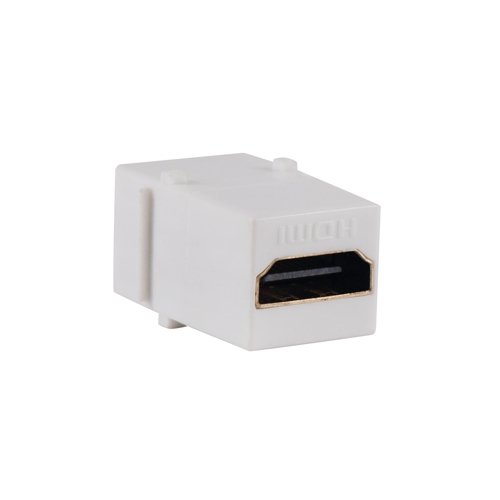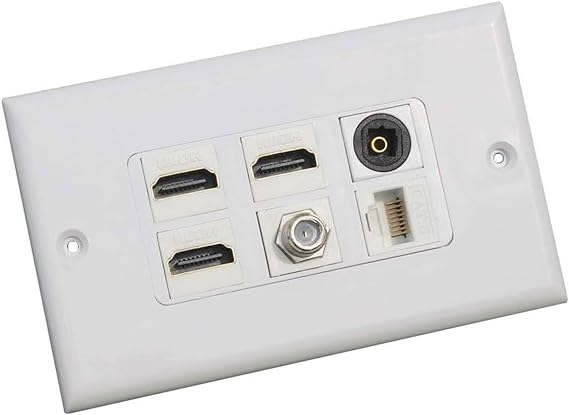Your browser does not support the video tag.

“Common Applications for 3 Gang Wall Plates in Commercial Settings” explores various commercial uses for three-gang wall plates beyond residential usage. Starting with an overview of 3-gang plates, the article highlights why they’re essential in commercial settings, focusing on reducing clutter, centralizing controls, and ensuring reliable connections. Applications include conference rooms, training centers, and auditoriums, along with hospitals, hotels, and

“Key Considerations When Selecting Speaker Wire Wall Plates” guides readers through important decision points when choosing speaker wire wall plates for home audio systems. First, the article covers the basics of speaker wire terminations, including gauge, stranded conductors, and insulation types. Then, readers explore connector options like banana plugs, spade lugs, and bare wire. Next, it explores the range of

“Differences Between Standard vs. Premium Speaker Wall Plates” provides a comparative analysis of both types of speaker wall plates, highlighting their distinguishing characteristics. An introduction familiarizes readers with speaker wall plates, including typical configurations and connectors. The following segments detail standard options available in the market, highlighting the differences in materials, connectors, fit & finish, and warranty coverage. Premium offerings

“Brush Wall Plates: Concealing Cables Without Compromising Connectivity” showcases the unique benefits of using brush wall plates to hide unsightly wires while retaining accessibility. The article starts by defining brush plates and their construction. It then lists different scenarios where they’re preferred over conventional wall plates or cable raceways. From entertainment centers to boardrooms, the piece demonstrates their relevance in

“Tips and Tricks for Installing Keystone Wall Plates” equips readers with valuable insights for executing professional-grade keystone wall plate installations. The opening sections describe the parts involved in a complete system, explaining the roles of jacks, housings, faceplates, and accessories. This leads to clear instructions for prepping work surfaces, drilling holes, and threading wires. Subsequently, mounting techniques, specifically angled versus

“Maximizing Your Network Speeds and Performance with RJ45 Wall Plates” is a practical guide focused on optimizing network speeds and reliability through effective deployment of RJ45 wall plates. Starting with an overview of RJ45 connectors and cables, the article delves into vital concepts like twisted pair wiring, EIA/TIA standards, and crosstalk reduction. This sets the stage for discussions on the

“Advantages of Using a 2-Gang Wall Plate Design” is an article focusing on the merits of opting for two-gang wall plate solutions versus single-gang counterparts. It begins by introducing two-gang plates and their design principles before diving into key advantages such as improved organization, versatility, and visual appeal. Other merits include compatibility with more devices and scalability for future upgrades.

“Top Reasons Why You Should Upgrade to HDMI Wall Plates” presents compelling arguments for adopting HDMI wall plates instead of traditional wiring solutions. The article first defines HDMI wall plates and their capabilities before enumerating several advantages, including uncompressed digital video/audio transmission, resistance to interference, and scalability. Readers will learn about applications suited for HDMI wall plates, from standard TVs

“The Benefits of Adding USB Wall Plates to Your Home” is an article advocating for the adoption of USB wall plates in residential environments. The piece begins with a brief introduction to USB wall plates, covering their purpose, capabilities, and types. Next, it outlines key benefits, such as easy device charging, data transfer, and improved accessibility. The piece further delves
Can’t find the specific information you’re looking for? Have a question ? Contact Us